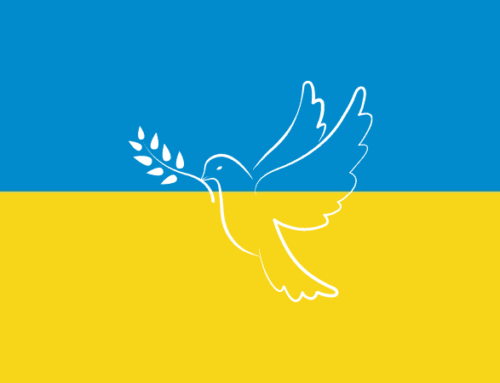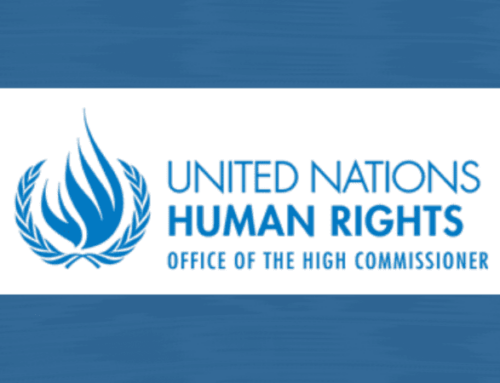On November 29, a regular court session of the Cassation Criminal Court was held within the Supreme Court in relation to the so-called “Crimean case”. Recall that the observers of the ISHR have been monitoring this case since May 2017. In January 2019, the court of first instance found V. Yanukovych guilty of high treason and complicity in the planning, preparation and conduct of an aggressive war. In 2021, the proceedings of the “Crimean case” reached the cassation instance.
Analyzing the court session, the experts of the ISHR identified a number of facts that may violate the standards of the ECHR, which guarantee to everyone the right to a fair trial.
Participation in the court of public defenders in the presence of official lawyers. Despite the fact that V. Yanukovych has his own lawyers, public defender also takes part in the court sessions. Such a contradictory situation arose even during the consideration of the case in the first instance, when the court decided to involve public defenders in the proceeding. A whole group of such violations was described by the ISHR experts in the final report “Observance of the right to a fair trial in the case of Viktor Yanukovych” (see page 11 of the final report). However, this violation was not rectified on appeal. As a result, 6-7 defense lawyers are present at the hearings, while the Criminal Procedure Code permits the simultaneous participation of no more than 5 defenders. ISHR observers note the passivity of the public defender. When the court gave him the opportunity to present his arguments, the lawyer simply stated that he supported the position of his colleagues (lawyers under the contract). In fact, this defender does not participate in the proceeding. Thus, the only effect of his presence at the hearings is a violation of the right to defense. The ECtHR in “Artico v. Italy” (paragraph 33) recalls that the Convention is intended to guarantee not rights that are theoretical or illusory, but rights that are practical and effective; this is especially true with regard to the right to defense. Article 6 part 3 (c) of the ECHR speaks of “assistance”, not “appointment” of a defense lawyer; a simple appointment does not guarantee effective assistance and protection.
It is noteworthy that this violation was created “artificially”, later this may well serve as a reason for a complaint to the ECtHR.
Time time limits for the statements of the parties. The court decided to limit the speech time of each of the participants in the proceeding to 30 minutes, motivating this decision by the need to comply with the principle of equality of arms, enshrined in the Criminal Procedure Code. In part, this decision can be caused by the participation of seven lawyers (and only two prosecutors) in the court at once. However, as mentioned above, this situation developed due to the decision of the court of first instance (before the attempts to bring public defenders into the case, only 3-4 lawyers took part in the sessions), and not on the initiative of the defense. Now, at the cassation hearing of the case, all this has led to the restriction of the speeches of lawyers.
During the hearing, five lawyers were heard. IAC ISHR observers note that each lawyer took a different time to speak, they did not repeat what had already been announced by their colleagues. Of the five defenders, only two did not fit into the time allotted by the court, (the judges began to rush the lawyers). It is not clear why in this situation, when there is objectively no reason to suspect that any of the parties may drag out the proceeding with their lengthy speech, the court decided to introduce a time limit not provided for by the Criminal Procedure Code (30 minutes per statement). Moreover, urging on two lawyers, the court did not allow them to fully express their arguments. Now, if the judges do not rush the prosecutors during their speech, the court’s attempt to ensure equality of the parties, on the contrary, will result in a violation of this equality, because the two lawyers were not given the opportunity to speak in full. Subsequently, the desire of the court to expedite the two lawyers may lead to the need to ascertain whether each party has been given a reasonable opportunity to state its position on conditions that do not put it at a disadvantage vis-à-vis its opponent (ECtHR judgment in “Ochalan v. Turkey”, para. 140).
The essence of the statements of lawyers. For a more detailed understanding of the course of the “Crimean case”, in the context of the observance of the right to a fair trial, it is worth mentioning some aspects of the statements of lawyers. Thus, the lawyer B. Bilenko cited a number of quotes of the protocols of the appeal sessions, refuting the position of the appellate court, which argued that the lawyers changed their appeals during the consideration of the case. The lawyer also showed that the texts of the protocols of the appeal sessions do not always coincide in meaning with the audio recordings of the same sessions.
Lawyer A. Fozekosh stated that one of the judges of the appellate instance is an open supporter of P. Poroshenko (one of the main political opponents of V. Yanukovych and a witness in the “Crimean case”) and has a personal dislike for V. Yanukovych, which is confirmed by numerous publications of this judge on his social media page.
The ISHR experts expect to hear the position of the cassation court regarding the facts presented by the defense.
The situation with the challenge of judges. It is worth noting the speech of the former Prosecutor General of Ukraine Y. Lutsenko. Speaking on November 25 on the “Ukraine 24” TV channel, the ex-official said that “the Ukrainian court has condemned Yanukovych by all its three instances for committing high treason”. This case is notable for the fact that such statements were regularly made by Y. Lutsenko, and during his tenure as Prosecutor General, the ISHR recorded this in the final report “Observance of the Right to a Fair Trial in the Case of Viktor Yanukovych” for 2019 (see p. 6 of the final report). At the hearing on November 29, V. Yanukovych’s lawyers even tried to challenge the judicial collegium (the initiator was lawyer A. Fozekosh), but the judges did not see the connection between Y. Lutsenko’s words and their collegium.
This fact is interesting not only in the context of the statements of the ex-official. During the hearing on November 29, the court refused to consider the statement of V. Yanukovych regarding his desire to appear in court. On the basis of this refusal, defender I. Fedorenko immediately tried to challenge the panel of judges. It is noteworthy that earlier, when considering the challenge initiated by defender A. Fozekosh, I. Fedorenko refrained from supporting this challenge. This circumstance indicates that the attempt to challenge the collegium by I. Fedorenko (who was supported by his colleague defender B. Bilenko) is not an abuse of his procedural rights. Nevertheless, having studied the written statement of B. Bilenko, the judges stated that this was actually the same statement with which A. Fozekosh had previously applied and, on this basis, decided not to consider the issue of the challenge. Thus, a situation has developed when the petition of the defender I. Fedorenko (initiated during the session due to the refusal of the collegium to consider the statement of V. Yanukovych and not related to the statements of Y. Lutsenko) was simply “hushed up” without giving it any assessment.
Postponement of the hearing. After hearing the statements of some of the lawyers, the court decided to take a break in order to give an opportunity to speak to the defender A. Goroshinsky, who was absent due to illness. The next hearing is scheduled for December 6, 2021. IAC ISHR will continue to monitor this trial.








Leave A Comment